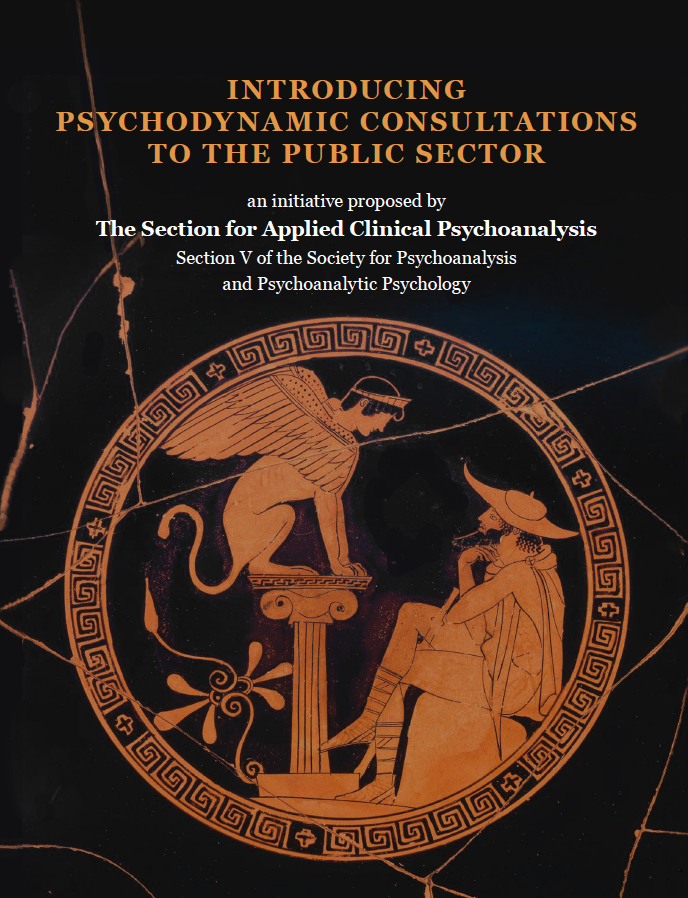CMHC Update Spring 2020 In May 2019, after twelve months of individual weekly psychodynamic consultations, our second pilot study concluded at the Clarity Child Guidance Center in San Antonio, TX. A paper describing the findings of quantitative data collected from the participants in the first pilot study in Huntington L.I. and revealing significant changes in work satisfaction and self-perceptions of development as a therapist, is now available: Rosenberg, L., Dauphin, V.B., Boulanger, G. (2018) The Impact mof Psychoanalytic Consultation for Therapists Working in the Public Sector: A Pilot Study. Journal of Applied Scientific Psychoanalytic Empirical Research, JASPER, 2018, Vol. 2., Issue 2, 5-20. If you are interested in volunteering to be a consultant in this program, or if you know of a clinic that would be interested in having psychodynamic consultants meet regularly with staff members, please be in touch with Ghislaine Boulanger Ghislaine242@gmail.com or Larry Rosenberg lmrphd@gmail.com Manual Now Available or it is available online here: |

